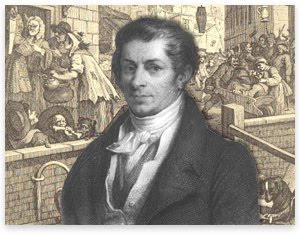The Concise Guide To Economics
by Jim Cox
28. Labor Theory of Value
The labor theory of value is the bedrock basis of Marxist or socialist economic theory. Disagreements between the socialist theory and that of the free marketeer can ultimately be traced back to the question of the theory of value.
The labor theory of value states that all value is a result of human labor. The theory has a certain initial plausibility since laboring does commonly result in additional value. However, a closer brief analysis reveals the obvious errors in such a theory.
If the labor theory of value was correct then a diamond found in a diamond mine would be of no greater value than a rock found right next to it since each would require the same "amount" of labor-time. A photo of a loved one would have the same value as a photo of a total stranger or of a hated enemy--check your wallets or desktops to test this theory. According to the labor theory of value if you have a slice of pizza for lunch, valued because of the labor-time required to produce it, you must necessarily value the next slice the same. The labor theory of value is a denial of the well-established law of diminishing marginal utility which states that the value to the consumer falls with additional consumption of the good in question. How a true believer Marxist ever justifies ceasing pizza eating is still a mystery.
One has to wonder what two Marxists attending a movie do as they leave together. Is each timid in expressing his opinion as to the pleasure or displeasure of the experience since he may disagree with his companion? After all, the movie required the same amount of labor-time in its production. How in this theory can the value of land space, a nature-given resource, ever be explained? According to the labor theory of value, if a skilled carpenter produces a solid, comfortable chair which is useful for decades in a mere four hours, whereas a klutz in four days produces a chair which collapses with the first attempted use, the latter chair is more valuable. (Marx had an escape hatch for this last dilemma: Only "socially necessary labor" creates value; however, Marx defines socially necessary in terms of the competitive market itself--thus we are right back to the market values Marx so vehemently abhorred!)
The labor theory of value resulted from the mistake of David Ricardo, who proceeded from Adam Smith's error in ascribing value to the total costs of production. Marx understandably built on Ricardo's theory and concluded that these costs can be traced back to the costs of labor--capital equipment being "frozen labor."
The alternate theory, the correct theory of value, is that value is subjective. The subjective theory of value concludes that goods have no inherent value, that goods are valuable only to the degree that there is a valuer desiring the good.
Returning to the examples above, the diamond is more valuable because people enjoy a diamond more than a rock, a photo of someone dear is more important to the photo owner than a photo of a stranger. People stop eating pizza after a few slices because the (necessarily subjective) pleasure diminishes with additional consumption; different movies appeal to different patrons' tastes. A working chair is preferred to a pile of chair pieces.
More fundamentally, Marx came to his labor theory of value from searching for an equality in the two goods which are exchanged for one another. Of course, Marx thought that the labor embodied in each good was that equality (rather than other factors he first discarded, such as weight, volume, etc.). But the nature of exchange is such that trade only occurs when there is an inequality in the subjective value of the good received and the good exchanged. If equality were indeed the basis of exchange, and say an orange was exchanged for a fish due to the equal amount of labor embodied in each, then logically, the two parties would immediately trade the two goods again since they are still equal in labor. This would become a never ending process until the two traders collapsed dead! As another example, and to test this theory, how many times have you traded a dollar bill for a dollar bill, and then traded them back, and then again?
In short, the whole of socialist economic theory is derived from the mistaken labor theory of value--it collapses for lack of a base; the whole of free market economic theory is derived from the solid base of the valid subjective theory of value.



fajna strona moja strona http://loloshop.pl/budownictwo/Grzejniki-na-podczerwie%C5%84-s%C4%85-sprawdzonym-systemem-grzewczym
ReplyDelete